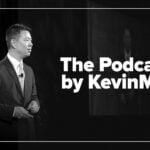For years, I didn’t realize the name for what I was experiencing as a primary care pediatrician was burnout. I just thought I wasn’t enough—not good enough, not hardworking enough, not experienced enough. That self-doubt didn’t stay confined to my role as a doctor; it crept into how I felt as a parent, a spouse, a community member.
Nothing ever felt like enough. So I did what I was trained to do: Work harder. Until I hit a wall.
Sound familiar?
I hear versions of this story daily in my revitalized private practice. Parents quietly confess they feel like they’re failing their kids. They see the growth charts, the mindless scrolling, the pantry raids—and blame themselves. They think they have to fix everything: the food, their bodies, their children.
It’s overwhelming.
And that’s the real problem.
We are collectively overwhelmed. Physicians are familiar with professional burnout. But as Surgeon General Vivek Murthy has emphasized, parental burnout is also a public health issue. The mental load parents carry doesn’t just strain families—it shapes our future.
And what’s the typical response? More doing. More planning. More controlling.
But what if the answer is to do less?
To slow down. To shift from producing and performing to feeling and connecting. Our bodies are screaming, “ENOUGH. I just can’t anymore.”
They’re right.
We are carrying too much—political chaos, relentless news cycles, health crises, adolescent meltdowns (fun times), financial pressure, and the endless needs of the people we love.
The first step isn’t a to-do list. It’s a truth: This isn’t a personal failing. It’s a signal the system isn’t working. And the antidote isn’t complicated. It’s one thing: connection.
Connection begins with a pause. With listening to our nervous systems. With giving ourselves what we actually need: safety, belonging, community.
When I paused professionally, I reconnected with the ambitious, idealistic woman who went into medicine to help others—and realized she’d lost herself along the way. That pause helped me define what really fuels me. It led me back to medicine and into a private practice built differently: one that supports family members of all ages, focused on social-emotional intelligence, relationships, and eating disorder prevention. I help parents break cycles—without breaking themselves.
To some, this may sound intangible. It’s not. It’s just unfamiliar.
Connection is profoundly human—and profoundly effective. It improves health outcomes, strengthens relationships, reduces burnout, and makes work and home life more joyful. It’s not fluff. It’s foundational.
Think of a forest. Trees are connected underground by a vast, intelligent web of roots and fungi, sharing nutrients and signals. That’s how the forest survives—even when individual trees struggle.
We’re no different.
When we connect—to ourselves, to each other—we calm our collective nervous system. We create the conditions where healing becomes possible.
This is emotional intelligence in action. And it’s medicine we desperately need.
If this resonates, I invite you to join me. I’m on a mission to rehumanize medicine and parenting by weaving connection into the very fabric of how we live and work. For ourselves. Our families. Our communities.
Let’s create a new kind of health—rooted in enoughness, togetherness, and a little less doing.
Wendy Schofer is a pediatrician.























![AI censorship threatens the lifeline of caregiver support [PODCAST]](https://kevinmd.com/wp-content/uploads/Design-2-190x100.jpg)
